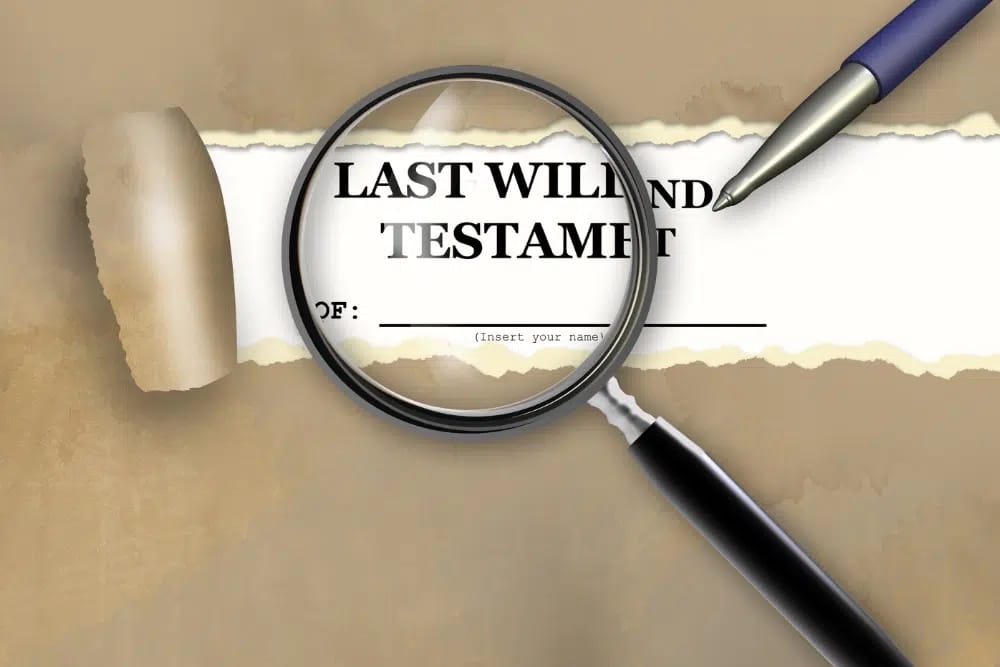
In estate planning, uncertainty and misconceptions often shroud the fate of our assets after we’re gone. One prevalent belief revolves around the idea that if you pass away without a will, the state swoops in to claim your hard-earned wealth.
Is this true? No. And it’s not the only prevalent myth flying around in regards to estate planning and what happens to your assets after you’re gone.
Below, we’re going to set the record straight and debunk several estate planning myths once and for all.
Here Are Five Myths About Wills
Myth #1: Your state inherits your property if you don’t have a will.
Hi. Thanks for stopping by for another dose of Bite-Sized Bits of Knowledge, where we give you meaningful information in a short amount of time.
Today we’re talking about when you die without a will, does it go to the state that you live in? So in our case, Florida or New York. The answer to that question is yes and no. Again, I’m not being cute, but the answer is not black and white. The answer is yes and no.
Here’s how it works. If you die without a will, as we talked about in numerous other videos, the state kicks in, the default rules kick in, and your beneficiaries are chosen for you.
At that time, if nobody comes forward and collects the assets, then most institutions will send those assets to, in our case, the Department of Unclaimed Funds. The Department of Financial Services, Department of Unclaimed Funds.
And it will sit there for a while before it ever goes to the state. So there’s a lot of opportunities to get a second attempt at getting those assets. We have actually been very successful at people calling us and saying, I just discovered assets at the Department of Unclaimed Funds. Can you get it? And we do, and it’s fine. It’s not a problem. So this is not something that you should be fearful of. There’s a lot of reasons to plan in the state. That’s not really one of them.
I would like to mention, though, as an aside, that still happens even if you do have a will. So it’s not really subject to whether you have a will or not. We just get that question a lot. If you have a will and you say, I want all my assets to go to child number one or equally with child number one and two, it doesn’t matter. And those assets don’t get claimed or for whatever reason, they get forgotten. Yeah, it could end up going to the Department of Financial Services and ultimately the state if they’re unclaimed for too long.
How long? I can’t tell you that. It seems to me it’s an unpredictable amount of time, but it’s been a long time. It’s not a week, it’s not a month. It’s time.
So I hope that that provides you with some clarification, some comfort. Thank you for stopping by, and stay tuned for more.
Bottom line? If you don’t have a will, and even if you do have a will, but it’s not validly executed, all of the property in your estate will pass in a manner set forth by state laws. It’s usually labeled “intestate succession.”
Again, as covered in the video above, the state only inherits property when nobody else related to you is alive and can be found. Most importantly, generally, great measures are taken to ensure that living family is found before going to the state.
Myth #2: A Will avoids probate.
Unfortunately, a will does not avoid probate. All property that is titled in your name goes through probate. It doesn’t matter what type of property it is. Unless it’s owned by another entity, such as a trust, jointly owned with another person, or passes outside of probate by operation of law, i.e., insurance or POD accounts, it will go through probate.
Each of these ways of avoiding probate has advantages and disadvantages that should be considered before making a decision one way or another.
Myth #3: A Will can be handwritten or oral.
Quite surprisingly to most people, it is that only under extremely limited circumstances – if ever – that a will can be executed orally or by hand. Most states, especially Florida, have strict rules for ensuring a will is validly executed.
Myth #4: A will is sufficient to preserve and protect a family’s assets.
A will is a legal document that expresses your postmortem wishes. It appoints a personal representative or executor to administer your estate. It designates a guardian of the person and property of minor children. It usually covers burial instructions, funeral expenses, and estate tax apportionment.
However, it is most commonly understood to govern the transfer of a deceased person’s property to his/her designated beneficiaries. A will alone neither protects your assets nor your beneficiaries’ assets.
A trust or entity must be employed to enjoy asset protection benefits. In particular, a trust is an incredibly valuable and versatile tool to accomplish many of your estate and business planning objectives, including preserving and protecting beneficiaries’ interests/inheritance.

Myth #5: Do-it-yourself computer software can effectively replace the need for a human attorney.
DIY products are a bad idea for most people. The problem is two-fold: First, it requires self-diagnosis or reliance upon a software algorithm to diagnose. Both are bad news. Second, estate planning deals with family, and every family’s circumstances are complex and unique. Software algorithms are designed for a limited amount of options and cannot possibly address every issue.
Business Owner? Succession Planning Myths You Should Ignore
Myths don’t just permeate typical estate plans, if you are a small business owner, you’ve likely heard a lot of falsehoods about how your business impacts planning for after you’re gone.
One area that’s rife with bad information? Succession planning. There are several succession planning myths out there that convince business owners they can wait – but you really, really shouldn’t.
Let’s dive in.
Succession Planning Is About Retirement, and I’m Not Retiring Anytime Soon
Succession planning is more than what happens should you retire or pass away. A succession plan should be an active part of every small business as soon as possible.
Why? A succession plan isn’t just about who takes over after you’re gone — it’s also about developing a strategy for the business to operate and grow beyond you even when you are still an active part of the business.
A good succession plan should include the following elements:
- Development of a timeline for the business’s growth and involvement of new owners, including your successors
- Identification of key successors
- Role development of successors, ideally before you retire
- How to finance the transition to successors

Succession Planning Can Wait Until I’m Ready to Retire
As succession planning myths go, this is a big one. Contrary to popular belief, succession planning is not a singular event but a gradual process that enables a smooth transition from generation to generation, allowing the business to outlive its founder(s).
Finding the right successor and developing their role to put them in a position to succeed in operating the business can often take many years. Ideally, this process should be complete before you retire, allowing for a seamless transition.
Additionally, a contingency plan is also important. This specifies what will happen during your premature demise or incapacity. Naming the next generation of ownership and providing some plan for how they conduct the business can prepare you for this unlikely eventuality.
Are you ready to take control of your estate’s destiny and secure the future of your assets? Don’t let myths and misconceptions cloud your understanding of estate planning and succession. Take the first step towards informed decisions by seeking professional guidance tailored to your unique situation. Whether it’s crafting a will that aligns with your wishes or devising a comprehensive succession plan for your business, our experts are here to provide clarity and expertise